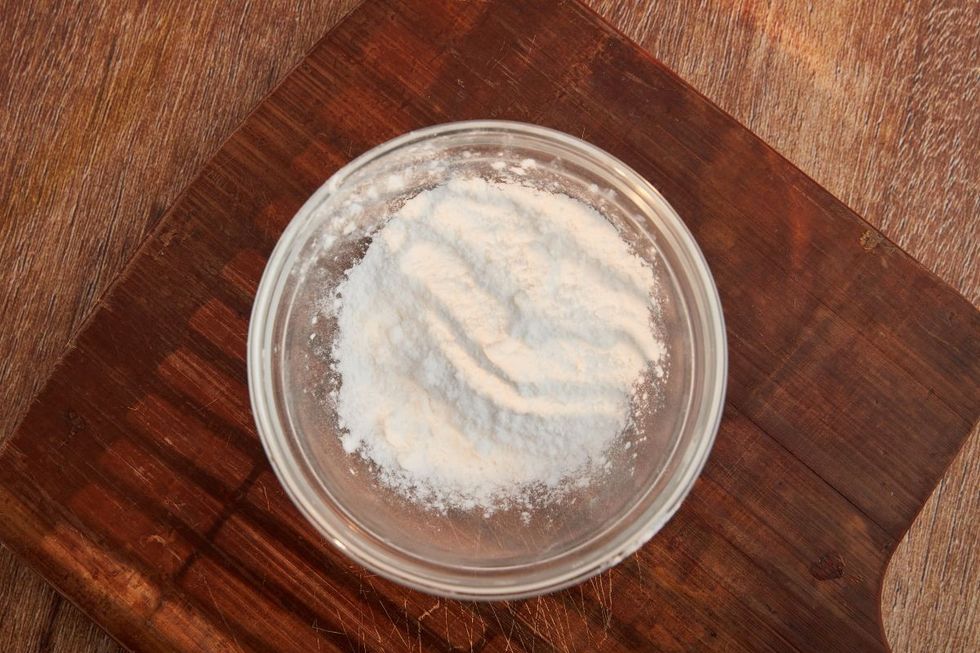Pancreatic cancer hope as sugar substitute shown to destroy cells in large numbers

The disease claims lives rapidly, with fewer than one in ten patients surviving beyond five years
Don't Miss
Most Read
Scientists have achieved a significant breakthrough in cancer research, demonstrating that fermented stevia extract can destroy pancreatic cancer cells while leaving healthy tissue intact.
The findings, published in the International Journal of Molecular Sciences, offer hope for treating one of medicine's most challenging cancers.
The Japanese researchers at Hiroshima University found that fermenting stevia leaves with specific bacteria creates powerful anti-cancer compounds.
Their laboratory experiments showed the fermented extract killed pancreatic cancer cells effectively while causing minimal damage to healthy kidney cells.

Cancer-killing properties resulted from bacterial enzymes
|GETTY
The research team discovered that fermenting stevia with Lactobacillus plantarum SN13T, a bacterial strain isolated from banana leaves, produces chlorogenic acid methyl ester (CAME).
This compound demonstrated superior anti-cancer properties compared to standard chlorogenic acid.
"Our findings indicate that FSLE demonstrates significantly greater cytotoxicity than the non-fermented extract at equivalent concentrations, suggesting that the fermentation process enhances the bioactivity of the extract," said Professor Masanori Sugiyama from Hiroshima University's Department of Probiotic Science for Preventive Medicine.
The fermentation process reduced chlorogenic acid levels six-fold, indicating bacterial transformation had occurred. The resulting CAME compound showed enhanced ability to trigger cancer cell death.
Laboratory experiments revealed that the fermented stevia extract exhibited markedly higher toxicity towards PANC-1 pancreatic cancer cells compared to unfermented versions at identical concentrations. The treated cancer cells underwent apoptosis, a process of programmed cell death.
"Notably, FSLE exhibited lower toxicity toward the HEK-293 cells, with minimal inhibition observed even at the highest concentration tested," Professor Sugiyama noted.
Associate Professor Narandalai Danshiitsoodol explained that the enhanced cancer-killing properties resulted from bacterial enzymes transforming the stevia compounds during fermentation.
"Our data demonstrate that CAME exhibits stronger toxicity to cells and pro-apoptotic effects on PANC-1 cells compared to chlorogenic acid alone," he said.
LATEST DEVELOPMENTS

The fermented extract proved effective in killing pancreatic cancer cells
| GETTY"Globally, the incidence and mortality rates of pancreatic cancer continue to rise, with a five-year survival rate of less than 10 per cent," said Associate Professor Danshiitsoodol.
He emphasised the disease's aggressive nature: "Pancreatic cancer is highly invasive and prone to metastasis, showing significant resistance to existing treatments, such as surgery, radiotherapy and chemotherapy."
The research team plans to advance their findings through animal testing. Mouse model studies will help determine optimal dosages and evaluate the compound's effectiveness throughout a living organism.
"The present study has substantially enhanced our understanding of the mechanism of action of the Lactobacillus plantarum SN13T strain in the fermentation of herbal extracts," Danshiitsoodol concluded.











